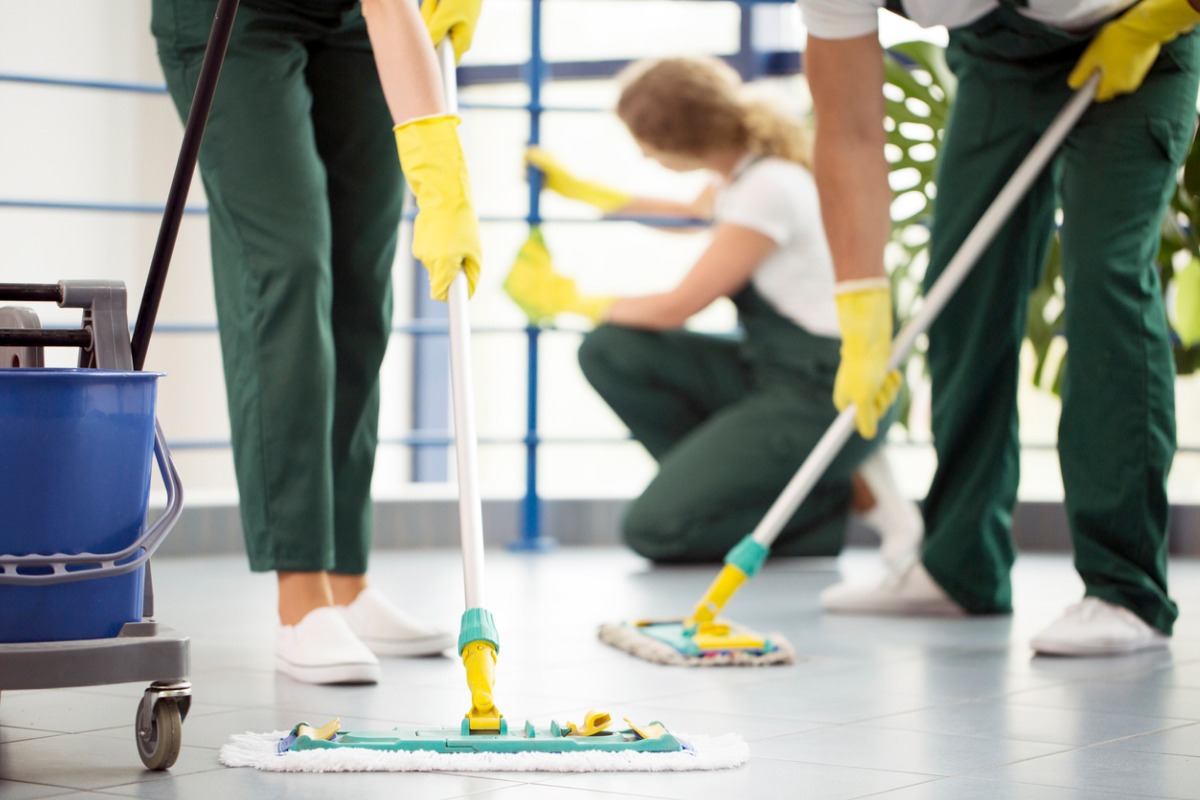Business insurance is intended to safeguard the financial assets of a business owner and is a vital investment for a cleaning company.

This article will discuss the primary insurance coverage for cleaning firms, general liability insurance, as well as additional policies that are appropriate for this industry.
Table of Contents
Cleaning Company General Liability Insurance
Every firm, regardless of sector, has risks that should be insured. General liability insurance is the most frequent and comprehensive form of coverage that company owners purchase.
General liability insurance covers the following risks:
Physical harm
Damage to property
Medical expenses
Legal defence and decision
Personal and commercial harm
While general liability insurance is not legally needed for companies, operating without it is exceedingly dangerous. If your company is sued, you might face costs in the hundreds of thousands of dollars (or more). The only way to avoid this sort of catastrophe from destroying your organisation is to have an adequate general liability insurance coverage in place to assist pay for these losses.
COMMON SITUATIONS THAT A CLEANING COMPANY’S GENERAL LIABILITY INSURANCE MAY COVER
Example 1: While cleaning a local recording studio, one of your staff spills a cleaning chemical all over a deck of pricey equipment. The customer expects you to pay for replacements. This cost will be covered by your general liability insurance.
Example 2: While loading the van with cleaning materials, an employee accidently knocks a customer down. The customer fractures her wrist and requests that you cover the cost of her medical care. Her medical expenditures will most likely be covered by your general liability insurance coverage.
Example 3: A competitor cleaning firm sends you a letter stating that they want to sue you for libel. While you are unsure how you may have libelled them, you are certain that you need the services of an attorney. Your legal expenditures will be covered by your general liability insurance.
Of course, this is not an entire list of risks covered by a general liability insurance policy, and certain situations may result in a specific peril not being covered. To minimise coverage gaps, it’s always better to speak with your agent about the terms of your policy.
General Liability Insurance Cost
Cleaning firms in America pay an average of $500 – $1,500 per year for $1 million in general liability insurance.
The cost of your coverage will be determined by a number of variables. Among them are your:
Location
Deductible
Employees’ number
Per-occurrence restriction
The overall aggregate limit
You may be able to get general liability insurance at a lower cost if you buy it as part of a business owner’s policy (BOP) rather than as a separate policy. A business interruption policy (BOP) is a more complete option that covers numerous types of coverage, such as business interruption and property insurance.
Other Types of Coverage Required by Cleaning Companies
While general liability insurance is the most crucial, there are various different types of coverage to be aware of. Other forms of insurance that all cleaning agencies should have are as follows:
Insurance for Professional Liability
Professional liability insurance will cover claims of negligence resulting from claimed errors or failures to perform. It will safeguard your cleaning company if a customer sues you alleging that your services or a mistake you made caused them harm. It will cover your legal bills as well as the cost of a settlement if one is required.
Insurance for Commercial Vehicles
Commercial car insurance is required if you own a vehicle that is mainly used for business purposes. This will safeguard your car, the driver, and other drivers on the road. If you are in an accident, it will cover the expenses of repair and replacement, as well as medical care for the wounded.
Types of Insurance That Some Cleaning Companies May Require
In addition to the insurance listed above, your cleaning firm may need other forms of coverage based on particular elements of your operations. Some of them may not apply to you, so be sure to ask your agent whether policies are appropriate for your company.
Insurance for Commercial Property
You’ve most likely spent a large amount of money on cleaning materials and equipment. It would be costly to replace if you lost it in an unforeseen disaster, such as a fire. As long as the loss was caused by a covered incident, commercial property insurance would assist pay replacement expenses.
Insurance for Workers’ Compensation
If you have employees, you must obtain workers’ compensation insurance to cover both them and your company if they are hurt on the job. Most states require firms to have workers’ compensation insurance. If an employee is injured while doing job responsibilities, this insurance will cover their medical expenditures. It will also assist pay the expense of missed income if they are unable to work due to their injury.
Additional Security Measures for Your Company
Although investing in company insurance is simple (and necessary), it should not be your first line of defence. Yes, insurance will reimburse your company for cash losses incurred as a result of an occurrence, but it is much preferable to avoid losses altogether.
With this in mind, here are a few steps you can take to better secure your company:
Make use of legally binding contracts and other business agreements. (We provide free templates for several of the most often used legal forms.)
To safeguard your personal assets, form a limited liability company (LLC) or a corporation. (To discover how to incorporate an LLC or company in your state, see our step-by-step tutorials.)
Keep your company licences up to date.
Streamline the internal procedures of your company. This will eliminate unneeded variables from routine activities and establish a secure, consistent environment in which to do business.
If your company is an LLC, you should check into LLC insurance.
